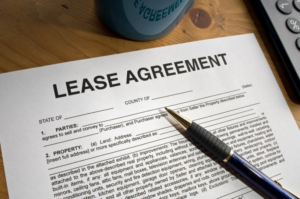Disputes are almost inevitable. Whether it’s between two companies or internal issues within a business, conflict can easily arise. For companies looking to resolve these disputes quickly and cost-effectively, alternative dispute resolution (ADR) has become a popular choice.
ADR offers a way to settle disputes without the lengthy and expensive process of going to court. Understanding what ADR is and how it works can be a game-changer for any business, especially when guided by experienced professionals, like the ones we have at Roquemore Skierski Business Lawyer.
What Is Alternative Dispute Resolution?
Alternative dispute resolution, often referred to simply as ADR, is a way to resolve disputes outside the traditional court system. ADR processes include arbitration, mediation, and negotiation, which allow disputing parties to find common ground without the need for a judge or lengthy trial.
ADR has gained popularity due to its efficiency, cost-effectiveness, and ability to preserve relationships between the parties involved. But to fully grasp its importance, we need to delve deeper into the alternative dispute resolution definition.
Understanding Alternative Dispute Resolution
The alternative dispute resolution definition can be summarized as any method used to resolve conflicts without resorting to litigation. This means bypassing the court system in favor of more flexible and often less adversarial approaches.
ADR is designed to meet the needs of all parties involved, focusing on mutual benefit rather than a win-lose outcome. It’s important to note that while ADR can help resolve many disputes, it’s not suitable for every situation, especially those involving criminal matters.
So, what is alternative dispute resolution really about? At its core, ADR is about finding common ground. It’s about exploring options that are agreeable to all parties, often leading to more sustainable and satisfactory outcomes than what might be achieved in a courtroom.
Types of Alternative Dispute Resolution Methods

There are various forms of ADR, each serving a different purpose and suitable for different types of disputes. The most common forms are mediation, arbitration, and negotiation. Below are some alternative dispute resolution examples to illustrate how these processes work in practice.
Mediation
Mediation is perhaps the most well-known form of ADR. In mediation, a neutral third party, known as the mediator, helps the disputing parties communicate and come to an agreement.
The mediator doesn’t impose a solution but facilitates discussion and helps the parties reach a voluntary resolution. Mediation is often used in disputes where the relationship between the parties needs to be preserved, such as in business partnerships or family-owned enterprises.
Arbitration
Arbitration is more formal than mediation but still less rigid than going to court. In arbitration, the disputing parties agree to submit their conflict to one or more arbitrators, who make a binding decision on the matter.
Arbitration is often used in contract disputes or cases where parties want a quicker, legally binding outcome without the time and expense of a courtroom trial. At Roquemore Skierski Business Lawyer, we are experienced in handling arbitration cases, ensuring a smooth and effective process for all parties involved.
Negotiation
Negotiation is the simplest and most flexible form of ADR. It involves direct discussions between the parties involved in the dispute. There is no third-party mediator or arbitrator; instead, the parties work together to find a solution on their own.
Negotiation can be the fastest and least expensive method of dispute resolution, especially when both parties are motivated to find a common resolution.
Why Businesses Should Consider Alternative Dispute Resolution

One of the primary benefits of alternative dispute resolution for businesses is the ability to save time and money. Litigation can take months, if not years, to resolve and can cost a significant amount in legal fees.
ADR, on the other hand, offers a quicker, more cost-effective way to resolve disputes. Additionally, ADR allows for greater flexibility. Businesses can choose the form of ADR that best suits their needs, whether that’s mediation, arbitration, or negotiation.
Moreover, ADR helps maintain business relationships. Going to court often creates hostility between parties, making it difficult to work together in the future. ADR, however, focuses on finding solutions that benefit everyone, making it easier to preserve professional relationships.
Another key advantage of ADR is confidentiality. Unlike court cases, which are a matter of public record, ADR proceedings are private. This makes ADR particularly attractive for businesses that want to keep disputes out of the public eye.
When Is Alternative Dispute Resolution the Best Option?
ADR isn’t suitable for all situations, but there are many scenarios in which it’s the best option. For example, if two companies have a contract dispute and want to resolve the issue without damaging their working relationship, ADR can be a great choice. Mediation might be particularly useful in this case, as it encourages communication and cooperation.
Arbitration is ideal when both parties want a quick, binding decision but don’t want to go through a lengthy court process. This is common in contract disputes or business disagreements where a legally binding resolution is needed but without the formality of a courtroom.
Negotiation works best when both parties are willing to discuss their issues openly and are motivated to find a solution without involving a third party.
At Roquemore Skierski Business Lawyer, we specialize in helping businesses navigate these processes. Our expertise ensures that your business not only understands the best form of ADR for your situation but also executes it effectively.
The Role of Lawyers in Alternative Dispute Resolution

While ADR is designed to be a simpler process than litigation, having the right legal guidance is crucial. Lawyers play an essential role in ensuring that the ADR process is fair and that your rights are protected.
Whether through mediation, arbitration, or negotiation, a lawyer will guide you through the process, explain your options, and help you understand the potential outcomes.
At Roquemore Skierski Business Lawyer, we have extensive experience in business litigation and ADR. Our team knows how to help businesses resolve disputes efficiently and in a way that minimizes disruption to daily operations.
Whether it’s negotiating a favorable settlement or representing you in arbitration, we can help you achieve the best possible outcome.
Choose the Right Dispute Resolution Method for Your Business
Choosing the right ADR method depends on several factors, including the nature of the dispute, the relationship between the parties, and the desired outcome. Mediation is best when parties want to maintain their relationship and are open to compromise.
For businesses in need of expert guidance, Roquemore Skierski Business Lawyer provides tailored solutions to ensure that your disputes are handled smoothly and effectively.
Don’t let disputes weigh down your business. Contact us today at (972) 698-5381 to explore how ADR can work for you.



